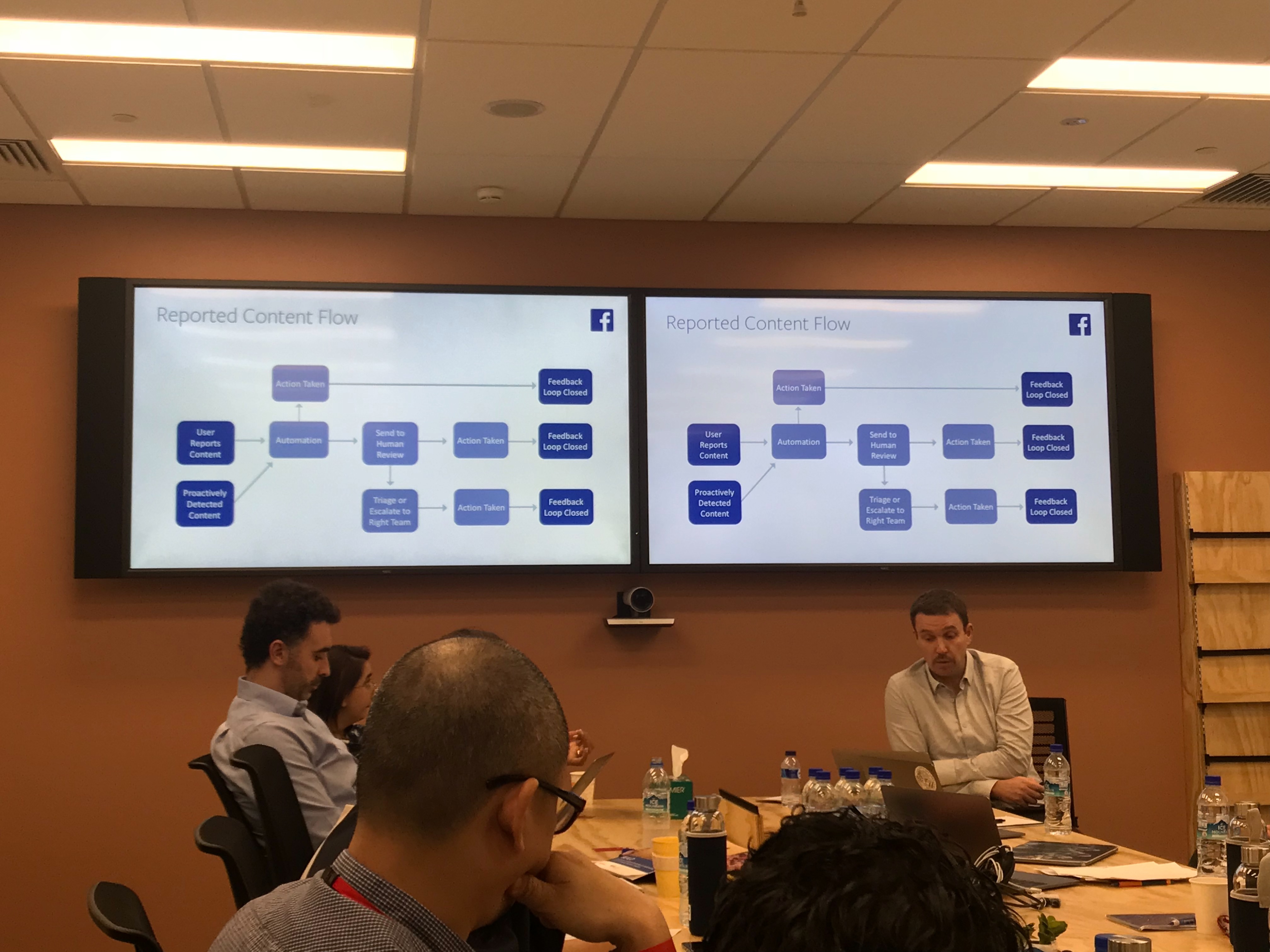
Facebook officials explain its policies during round table discussion with the media in Singapore, Nov.13. (Photo by Maila Ager/INQUIIRER.net)
People using fake accounts on Facebook and “falsely” liking contents to amplify them, be warned.
Social media giant Facebook said it will be training its guns at so-called “coordinated inauthentic behavior” as elections draw closer in some parts of the world, including the Philippines.
Monika Bickert, vice president of Facebook’s global policy management, describes “coordinated inauthentic behavior” as “networks of actors that may be using fake accounts, misrepresenting their identity, and falsely liking one another’s content to amplify it.”
“That is where a lot of our efforts are focused now,” Bickert said during a round table discussion with the media in Singapore early this week.
To stop this “inauthentic behavior,” she said Facebook has built a team to uncover these “network of actors.”
In fact, Bickert said the company has already disrupted big networks in various countries like the Philippines and Myanmar.
The company earlier reported that it had taken down a network of 95 pages and 39 accounts in the Philippines for violating its spam and authenticity policies.
Among the pages that were taken down were pages that carried the names of President Rodrigo Duterte and Imee Marcos, daughter of former President Ferdinand Marcos, such as Duterte Media, Duterte sa Pagbabago BUKAS, DDS, Duterte Phenomenon, DU30 Trending News, Hot Babes, News Media Trends, Bossing Vic, Pilipinas Daily News, Like and Win, and Manang Imee, Karlo ang Probinsiyano.
At least one of the 95 pages had 4.8 million followers, Facebook said.
READ: Facebook shuts down ‘spammy’ pages linked to Duterte, Imee Marcos
Bickert added that fake news is prevalent during elections.
While Facebook has tools to detect fake accounts and other violations of its policies, she admitted that determining whether a post is accurate or not is another issue.
And this is when the company seeks the assistance of third-party fact-checkers in certain areas to verify the authenticity of any suspicious posts or contents being shared on the platform.
Bickert said Facebook also reduces by an average of 80 percent the virality of a content that is “likely false.”
Aside from working with third-party checkers and reducing the virality of a post, she said they also surface relevant or accurate information to counter false information.
“And sometimes we do this directly if we have an indication that a post might be inaccurate…We will surface related articles from mainstream media outlets so the people have the full context when they see a news article,” she explained.
Bickert though clarified that they don’t have a policy “that you have to get your facts right on Facebook.”
“For one thing that would be extremely hard for us to police because we won’t necessarily know whether a specific piece of information is true or not,” she said.
“There’s also a question about whether or not it’s appropriate for a private company to be making determination on whether something is true or false.”
“So generally, our approach is surface relevant information and counter the virality…” Bickert further explained. /muf